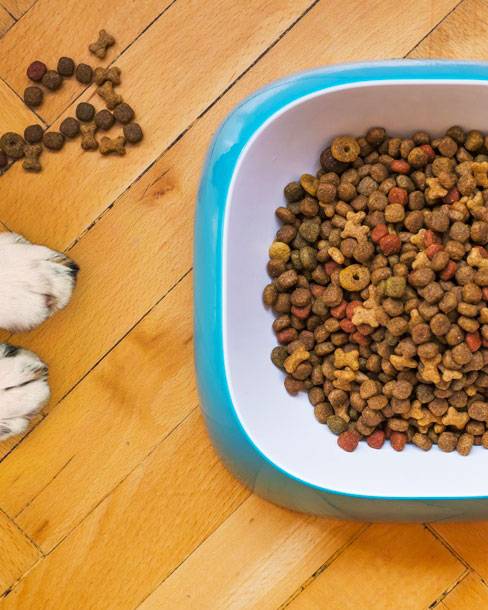Has your Cockapoo gone off food? Well, Cockapoo’s can be fussy eaters! This is a common issue shared among Cockapoo owners. But don’t get frustrated, it can be a simple fix with some training or a visit to the vet to solve the issue.
[amazon box=”B0757SGLFY”]
If you find yourself with an older Cockapoo not eating, or a puppy not eating, it could be due to a number of factors. It could be due to health conditions or behavioural problems, to the type of food you’re giving your Cockapoo. Dogs, in general, are made for extended fasting. Although they’re often very food-motivated, dogs can go long periods of time without issues with no food as long as they’re otherwise healthy. Yet, to properly treat a dog’s loss of appetite, you have to know what’s causing it.

If a dog refuses to eat, it’s usually either a behavioural issue or a health-related problem. In the behavioural sense, there’s some good news. Dogs whose appetite loss is related to behaviour are still usually willing to eat some foods especially new diets they aren’t used too or treats. Complete food refusal over a long period is rare without an underlying medical reason.
Dogs aren’t born picky rather, they learn to be picky. This is most common in smaller dogs who’ve been offered a range of foods. Extra offerings from your own plate or excessive treats can provide way more calories than owners realise. So a dog then may refuse their own food due to being full and waiting for something tastier.
Something else to consider is the schedule you feed your dog on. It’s been proven that a dog that is fed at the same time every day is less likely to be picky than a dog that gets fed at a different time every day. A good way of telling if your Cockapoo is being picky is if they’re refusing to eat foods they’re familiar with but gets very excited about new or high-calorie foods.
If you do suspect your Cockapoo’s issue is behavioural, try the following steps.
Some Things To Try
1. Allow your dog to wait it out and not eat for two to three days. As time goes on, your Cockapoo will probably get much less selective.
2. Stick to a strict feeding schedule. As mentioned above this is very important. Leave the food out for 15 minutes. Your Cockapoo will become accustomed to the routine and often quickly learn they must eat their food or they lose it.
3. As previously mentioned, excessive treats can cause pickiness. so cut back on giving your Cockapoo as many treats.
4. Switch up your feeding location. Also, try to minimise things like noise in the house or unfamiliar guests around mealtime. This can cause anxiety during mealtime for your Cockapoo.

5. Exercise your Cockapoo before giving them their meal. Routine exercise can help to improve their metabolism and stimulate the appetite. But give your Cockapoo a break before eating. You don’t want to feed your Cockapoo when she’s still excited and panting
6. Consider the rotation of different foods. But keep in mind it’s usually best to switch food types no more than once a week. Otherwise, your Cockapoo may try to wait it out for the next day until she gets her favourite meal.
7. Simply consider a better tasting diet. This can include a diet higher in protein, food with a different texture or food with more moisture.
However, if you’ve tried all the previously mentioned steps and still have a Cockapoo refusing food, then this could because for concern and warrants a trip to the vet. If your Cockapoo won’t eat at all but drinks water or refuses everything all together, it could be a sign of a health problem. Potentially, it could be dental issues that are causing your Cockapoo pain when they eat. Dogs are unable to tell us when they’re in pain so this could be going on without you even knowing.
Mental conditions such as anxiety and aggression appear to cause loss of appetite in some Cockapoos and animals in general. Especially with Cockapoos being such people loving dogs this is a possibility that your vet or dog behaviourist may consider. Physical injuries such as damage or inflammation to your Cockapoo’s muscles or ligaments could cause lack of appetite. Organ dysfunction is another possible reason for the loss of appetite that your vet can diagnose if present.
Mike is the proud owner of a 7-year-old Cockapoo named Luna. He loves to share stories, tips and information about owning a Cockapoo. With over7 years of experience as an owner, Mike is passionate about helping others own and care for their dog.
Top 5 Popular Cockapoo Products
